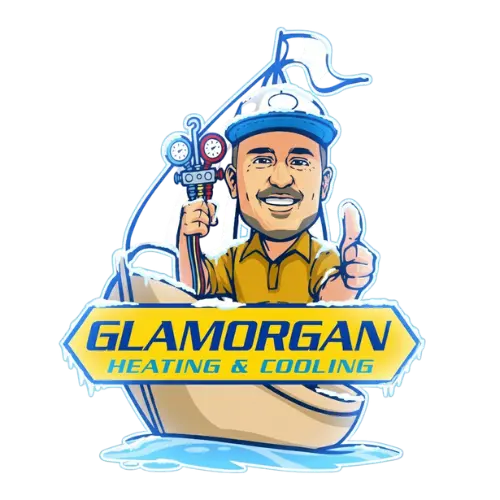Summer Leak Detection Tips 2025 help New York homeowners catch hidden plumbing problems before they cause high water bills, mold, or structural damage. Simple checks, smart sensors, and professional inspections protect homes in Albany, Clifton Park, Troy, and the Capital Region from costly summer leaks.
Summer Leak Detection Tips 2025 are a must for New York homeowners. With temperatures rising and water usage increasing, your plumbing system works harder than ever. Leaks can form in hard-to-see places and quietly waste gallons of water per day, leading to higher bills, mold, and even structural damage.
In this guide, you’ll see how to spot the most common summer plumbing issues and what to do if you notice something wrong. Our expert team is here with professional inspections, fast repairs, and honest advice. Whether you’re maintaining an older home or settling into a new one, these Summer Leak Detection Tips 2025 will help you avoid surprises.
Why Should You Check for Leaks in Summer?
Many people associate plumbing problems with winter, but summer brings its own risks. Increased demand from irrigation systems, outdoor activities, and household guests can push plumbing systems to the limit, while heat can cause materials to expand and shift, creating weak spots in your water lines or fixtures.
TL;DR: More summer water use plus heat expansion means small leaks can appear and worsen quickly—check now, not after the damage is done.
How Can Your Water Bill Reveal Hidden Leaks?
A sudden or unexplained spike in your water bill is often the first sign of a hidden leak. Even a slow, steady drip can waste hundreds of gallons a month. Compare your current usage to the same period last year, and watch for gradual increases that don’t match changes in your habits.
Where Do Summer Leaks Commonly Start?
| Location | Common Leak Cause | Summer Red Flag |
|---|---|---|
| Toilets | Worn flapper or fill valve | Toilet runs randomly or silently between uses |
| Outdoor faucets & hoses | Freeze damage, worn washers | Wet spots or erosion near spigots |
| Irrigation systems | Cracked lines or broken heads | Soggy lawn areas or oversaturated soil |
| Appliances | Loose hoses, aging seals | Puddles, rust, or warped flooring |
| Basements & crawl spaces | Condensation or pipe leaks | Musty odors or visible mold |
How Do You Test Toilets for Silent Leaks?
Toilets are one of the most common sources of indoor leaks. A simple dye test can reveal silent leaks that waste water around the clock. Drop a few drops of food coloring into the tank and wait 10–15 minutes without flushing, if color appears in the bowl, you have a leak that needs repair.
TL;DR: Color in the toilet bowl without flushing = silent leak you can’t ignore.
What Should You Check Outside: Faucets, Hoses, and Sprinklers?
Outdoor water systems often go unchecked for months. Examine garden hoses, hose bibs, and irrigation heads for drips, loose fittings, or spray patterns that hit sidewalks and siding instead of plants. Look for wet patches in your yard, erosion near spigots, or unexplained damp soil even on dry days.
How Do Appliances and Utility Areas Hide Leaks?
Areas around washing machines, dishwashers, and water heaters are prime leak zones. Small drips at supply lines or valves may go unnoticed behind or under equipment. Check for pooled water, rust stains, swollen baseboards, bubbling paint, or mold around the base of these appliances as signs of a hidden leak.
Can Musty Smells Signal a Hidden Leak?
A hidden leak often reveals itself through odor before you see visible water. If you notice musty smells under sinks, behind toilets, in basements, or near walls, investigate further. Mold can begin forming within 24–48 hours of moisture exposure and may indicate an ongoing leak behind the surface.
How Can You Do a Simple DIY Whole-Home Leak Check?
DIY Summer Leak Check Steps:
- Pick a two-hour window when no one will use water indoors or outdoors.
- Locate your main water meter and record the current reading.
- Turn off dishwashers, washing machines, sprinklers, and ice makers.
- After two hours, re-check the meter—any change suggests a hidden leak.
- If the reading changes, start checking toilets, faucets, outdoor lines, and appliances for drips, damp spots, or sounds of running water.
- Call a licensed plumber if you can’t find the source but the meter still moves.
Where Should You Install Smart Water Sensors?
Smart leak detectors can alert you the moment water is detected where it doesn’t belong. Many WiFi-enabled options send real-time notifications to your phone, giving you time to shut off water or call for help before major damage occurs. They’re especially useful for vacation homes or finished basements.
What Are the Best Locations for Leak Detection Devices?
| Location | Why Place a Sensor Here | Risk Level |
|---|---|---|
| Under kitchen sink | Catches drain, disposal, and supply line leaks early | High |
| Behind toilets | Detects supply line failures and tank leaks | High |
| Near water heater | Warns of tank failures or valve leaks | High |
| Laundry room floor | Alerts you to washer hose bursts or drain issues | Medium–High |
| Basements/crawl spaces | Detects seepage, sump failures, or pipe leaks | Medium–High |
When Should You Call a Professional for Leak Detection?
If you suspect a leak but can’t pinpoint the source, it’s time to call a licensed professional. Glamorgan Heating & Cooling uses tools such as thermal imaging, acoustic sensors, and advanced moisture detection to track down hidden leaks behind walls, under slabs, and in hard-to-access areas with minimal disruption.
What Is the Real Cost of Ignoring a Leak?
Putting off a small leak can lead to major issues over time. Water damage can destroy drywall, flooring, cabinets, and even your home’s foundation. Addressing leaks early protects your home’s structure, prevents mold growth, and avoids the stress and expense of emergency restoration work.
According to the EPA WaterSense Program, fixing easily corrected household leaks can save the average household about 10,000 gallons of water per year, often from dripping faucets, running toilets, and leaky outdoor lines.
Summer Leak Detection in New York’s Capital Region
Homes in Troy, Clifton Park, Albany, Saratoga, and surrounding Capital Region communities face seasonal leak risks from aging plumbing, hard water, and shifting soils. Summer irrigation, outdoor entertaining, and higher water demand make early leak detection especially important for preventing property damage and surprise bills.
Glamorgan Heating & Cooling provides comprehensive plumbing inspections, leak detection, and repair services tailored to Capital Region homes, with transparent pricing and trusted, local plumbers.
Frequently Asked Questions: Summer Leak Detection Tips 2025
▸ How often should I check my home for leaks in summer?
A quick leak check once a month during summer is a smart habit. Review your water bill, test toilets, walk your yard, and look around appliances. Schedule a professional inspection yearly or any time you notice unexplained moisture or musty odors.
▸ What is considered a “minor” plumbing leak?
A minor leak is usually a slow drip or small seep, like a dripping faucet, slight toilet trickle, or damp spot under a sink. Even “minor” leaks can waste hundreds of gallons over time and should be repaired promptly to prevent damage.
▸ How do I know if my irrigation system is leaking?
Signs of irrigation leaks include unusually wet or sunken patches of lawn, water pooling near heads, plants drowning while others stay dry, or the system running but delivering weak spray. A large, constant leak can significantly raise your summer water bill.
▸ Are smart leak detectors worth the investment?
Yes. A single undetected leak can cause thousands of dollars in damage. Smart sensors are relatively inexpensive and can alert you immediately to water in high-risk areas, making them especially valuable for finished basements, vacation homes, or homes with older plumbing.
▸ Can I wait until fall to fix a small summer leak?
Waiting is risky. Water damage, mold, and structural issues can develop quickly, especially in warm, humid conditions. Fixing leaks promptly is almost always cheaper than repairing long-term damage to drywall, flooring, or foundations.
▸ Does Glamorgan offer leak detection and plumbing repair?
Yes. Glamorgan Heating & Cooling provides full plumbing leak detection, repair, fixture replacement, and preventive maintenance for homes throughout the Capital Region, with transparent pricing and fast response when you suspect a leak.
Book Your Leak Inspection with Glamorgan Today
Stay ahead of summer plumbing issues by scheduling a full system check. Whether you suspect a leak or just want peace of mind, our licensed plumbers are ready to help with thorough inspections and straightforward recommendations.
To get started with Summer Leak Detection Tips 2025 in action, call (518) 723‑0392 or claim your free plumbing checklist today.
Related Services:



